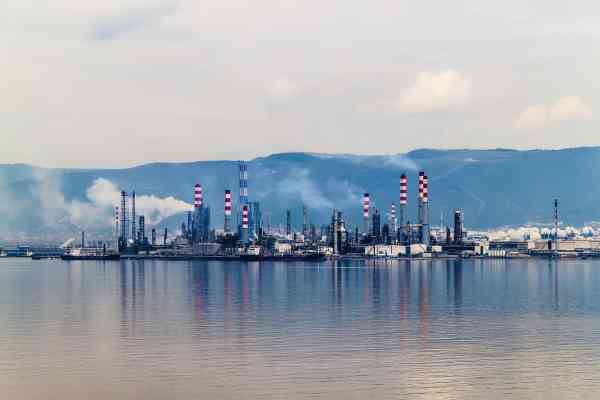July 19th, 2023 | 08:55 CEST
Battery technology - but sustainable! Volkswagen, First Phosphate, SMA Solar
Germany's former flagship industry is suffering: Shifts are being cut at the Volkswagen plant in Zwickau. The reason: customers remain reluctant to buy new cars. They are not yet convinced by many e-cars. Added to this is the price shock. Using three companies as examples, we explore how it could go on for car manufacturers like Volkswagen and how investors can still bet on e-mobility.
time to read: 3 minutes
|
Author:
Nico Popp
ISIN:
VOLKSWAGEN AG VZO O.N. | DE0007664039 , FIRST PHOSPHATE CORP | CA33611D1033 , SMA SOLAR TECHNOL.AG | DE000A0DJ6J9
Table of contents:

"[...] When we acquire something, we want to make sure that the acquisition fits with our strategy and has the potential to be successful for our shareholders. [...]" John Jeffrey, CEO, Saturn Oil & Gas Inc.
Author
Nico Popp
At home in Southern Germany, the passionate stock exchange expert has been accompanying the capital markets for about twenty years. With a soft spot for smaller companies, he is constantly on the lookout for exciting investment stories.
Tag cloud
Shares cloud
Volkswagen and Co. with weak sales
Volkswagen built around 22% fewer cars in Europe in the first 5 months of the year compared to the same period in 2019. Because of the continuing inflation and the uncertainty of many homeowners in the wake of the heating dispute, it is unlikely that more people will decide to buy a new car again soon. In addition, the competition from China is digging in its heels and has the potential to unleash a price war. Given high wages and energy costs, German manufacturers can hardly win this price war.
Nevertheless, there is hope in the medium term. More and more jurisdictions are preparing to lower the barriers to market entry for Chinese companies. France, for example, wants to link e-car subsidies to sustainable supply chains. On the EU side, too, there is a growing realization that while relations with China's economy must be nurtured, they must also be managed assertively. While automakers like VW and even Mercedes-Benz are suffering, the hour may be ripe for tomorrow's technology suppliers.
First Phosphate: Sustainable battery supply chain for North America
One of those suppliers could be First Phosphate. The Canadian company mines phosphate, relying on so-called igneous phosphate, which can be mined in an environmentally friendly way and is also of high quality. "Our main properties are located a maximum of 145 km from a deepwater port in Saguenay and are close to the city of Saguenay, which also has an airport. Other advantages include good road access and clean and economical energy from hydropower. All of these factors ensure that we will be able to extract phosphate for the LFP battery and that we will also be able to do it in a completely environmentally sustainable way," First Phosphate CEO John Passalacqua said in an Interview in March.
The Company plans to cover the entire value chain from mining phosphate to manufacturing the active material of the cathode in lithium iron phosphate batteries. This type of battery is now the gold standard in both the automotive industry and in the home as power storage for photovoltaic systems. Currently, First Phosphate is working on a preliminary feasibility study and can envision entering the market in 2026. This puts the Company at an interesting stage: while Western automakers fight for market share, First Phosphate can focus on the future. The sustainably mined battery material will likely be in urgent demand from 2026. By law, Chinese automakers may also be required to use pre-products with the smallest possible environmental footprint. First Phosphate's stock only went public this year and initially held steady. After the correction, the stock seems to have found a bottom. The operating perspective is interesting!
SMA Solar: Photovoltaic systems are booming
A second pillar for First Phosphate could also be the growing demand for photovoltaic systems with electricity storage. Even small batteries with capacities of around 5 kW are suitable for significantly increasing the degree of self-sufficiency of households. If the solar modules on the roof are not producing much power due to clouds, or if several consumers in the house are drawing energy simultaneously, the battery will step in. Batteries of this type can also bridge the gap during the night. In North America, where First Phosphate is active, the demand for such PV systems is also growing. German company SMA Solar sells about a quarter of its inverters in the US. Inverters harness solar power and also make it possible to drive electricity storage systems. In many regions of North America, there are subsidies for private solar installations. For example, private individuals and companies in Ontario have been receiving a feed-in tariff since last year if they lease or otherwise finance systems.
Even though the German auto industry is weakening, the demand for modern battery technology is growing. Lithium iron phosphate batteries are now standard. As sustainable supply chains gain importance, Canadian company First Phosphate could profit with its plans to cover large parts of the value creation around battery technology in North America. The stock has corrected, and investors can take a closer look at the Company. In contrast, the SMA Solar share appears comparatively expensive. Uncertainty also currently prevails at VW.
Conflict of interest
Pursuant to §85 of the German Securities Trading Act (WpHG), we point out that Apaton Finance GmbH as well as partners, authors or employees of Apaton Finance GmbH (hereinafter referred to as "Relevant Persons") may hold shares or other financial instruments of the aforementioned companies in the future or may bet on rising or falling prices and thus a conflict of interest may arise in the future. The Relevant Persons reserve the right to buy or sell shares or other financial instruments of the Company at any time (hereinafter each a "Transaction"). Transactions may, under certain circumstances, influence the respective price of the shares or other financial instruments of the Company.
In addition, Apaton Finance GmbH is active in the context of the preparation and publication of the reporting in paid contractual relationships.
For this reason, there is a concrete conflict of interest.
The above information on existing conflicts of interest applies to all types and forms of publication used by Apaton Finance GmbH for publications on companies.
Risk notice
Apaton Finance GmbH offers editors, agencies and companies the opportunity to publish commentaries, interviews, summaries, news and the like on news.financial. These contents are exclusively for the information of the readers and do not represent any call to action or recommendations, neither explicitly nor implicitly they are to be understood as an assurance of possible price developments. The contents do not replace individual expert investment advice and do not constitute an offer to sell the discussed share(s) or other financial instruments, nor an invitation to buy or sell such.
The content is expressly not a financial analysis, but a journalistic or advertising text. Readers or users who make investment decisions or carry out transactions on the basis of the information provided here do so entirely at their own risk. No contractual relationship is established between Apaton Finance GmbH and its readers or the users of its offers, as our information only refers to the company and not to the investment decision of the reader or user.
The acquisition of financial instruments involves high risks, which can lead to the total loss of the invested capital. The information published by Apaton Finance GmbH and its authors is based on careful research. Nevertheless, no liability is assumed for financial losses or a content-related guarantee for the topicality, correctness, appropriateness and completeness of the content provided here. Please also note our Terms of use.




